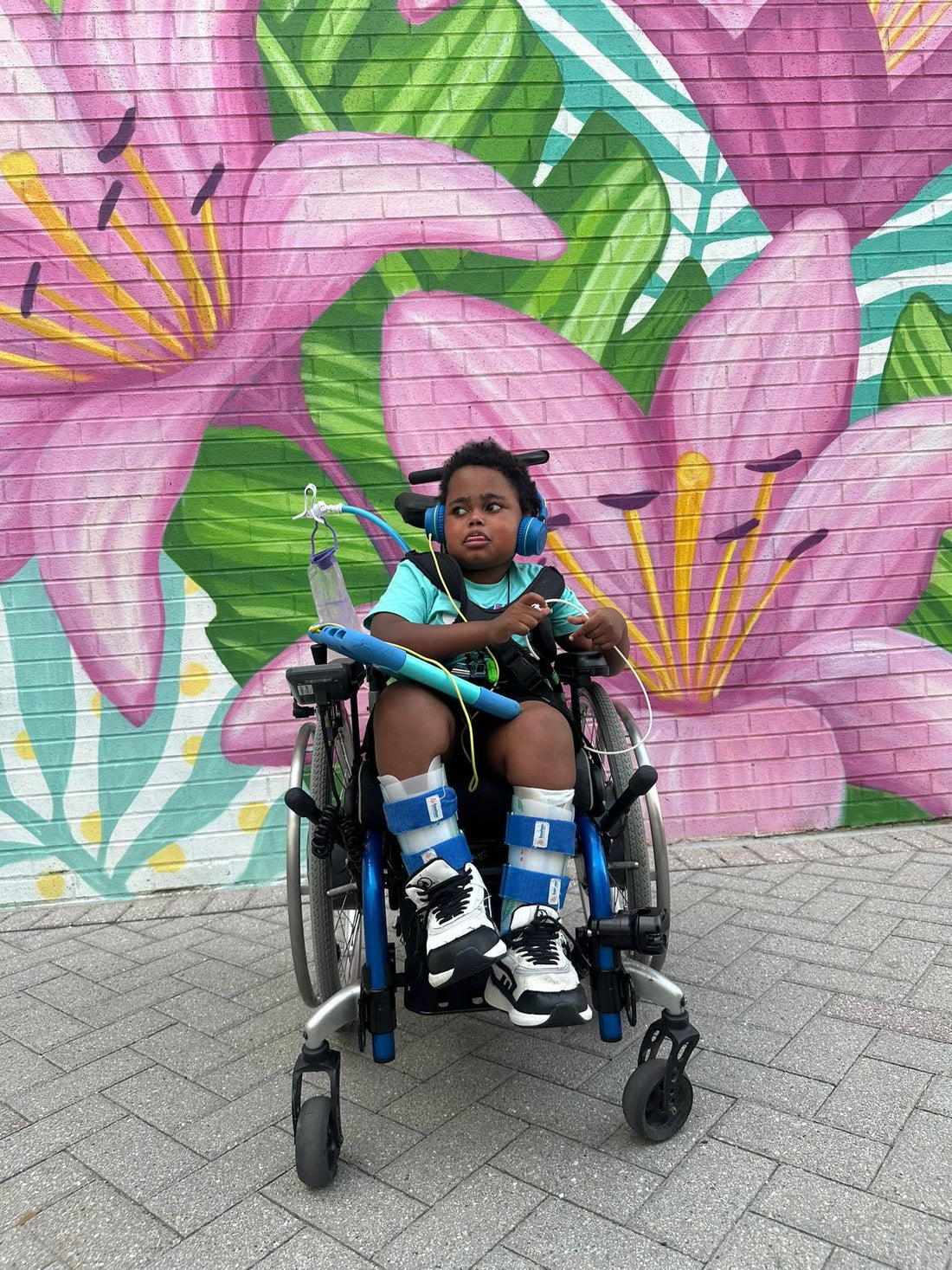
Still Beautiful...
Share
When Kolin was born, I was warned about all the things he would likely never do.
“There’s a good chance he’ll be blind, mute, unable to breathe on his own, and will need home oxygen.”
“He will most likely be severely handicapped and require total care.”
His NICU team cared for him well, but they didn’t leave much room for hope. No one talked about what life could look like when he came home.
One day, his NICU occupational therapist pulled me aside and said something I’ll never forget:
“Ashley, push aside all the predictions the doctors have given. Your job is to love him and give him every tool possible—and he’ll show you exactly what he’s capable of.”
I’ve carried that message with me for the past six year through countless hospital visits, procedures, therapies, and appointments.
I’ve done everything I can to hold up my end of the deal:
· Therapy 3–4 times a week
· A home therapy room full of equipment
· Intensive therapy programs twice a year
· Quitting my job to be fully present
· Making space for Kolin to just be a kid
· And continuing on, even after my husband died.
And Kolin? He’s risen to the occasion.
He’s nonverbal, but bosses me around with his communication device.
He loves counting, reading, and playing jokes on people.
He works so hard in therapy.
He shows me every single day what he’s capable of.
This is why I share our story—the good, the bad, and the everyday.
Because I want new medical parents to know: this journey is hard, but it can also be beautiful.
It may never get “easy,” but you’ll get stronger.
You’ll learn how to manage better.
You’ll build systems and gather tools.
And you’ll meet incredible people who choose to walk beside you.
To every medical family out there:
This may not be the journey you imagined when you first saw that positive pregnancy test…
But that doesn’t mean it can’t still be beautiful.
